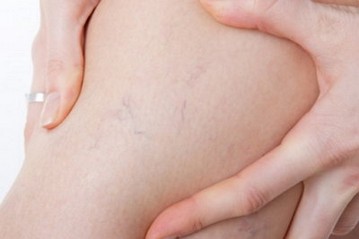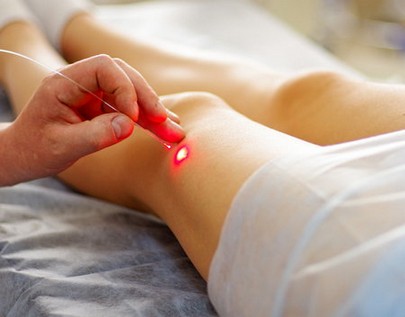Varicose Veins During Pregnancy

Contents:
VaricoseVeins in Pregnancy
Varicose veins definitely are an unpleasant illness, but they don’t affect pregnancy (unless your condition is especially heavy).
Causes of Varicose Veins
Varicose veins appear because of the malfunction of the venous valves and the weakness of venous walls. These veins start looking enlarged and swollen because of this illness. Varicose veins often appear during pregnancy, especially when woman has a genetic predisposition. Pregnant women usually have varicose veins on their feet and less often on their external genitals. Though varicose veins mainly are a cosmetic defect, sometimes (especially during pregnancy) they can be very painful.
If you start noticing symptoms of this illness or simply have a predisposition to it, contact the phlebologist immediately. When pregnancy progresses, the risk of varicose veins complications increases too. Thrombophlebitis is one of these complications: it often appears during childbirth or in the postpartum period and can cause a situation that is dangerous for both the mother and the fetus.
Typical causes of the varicose veins are:
- genetic predisposition;
- presence of the varicose or/and capillary veins before pregnancy;
- rapid weight gain or overweight;
- sedentary lifestyle;
- prolonged exposure to the sun;
- repeated pregnancies.
When a woman is pregnant, her body experiences hormone changes. During that time, growing uterus puts a lot of pressure on the veins that transfer blood from legs: this complicate the venous blood flow in legs. Additional weight of a woman (including the one that is caused by multiple pregnancy) multiplies this pressure on deep leg veins. This extra pressure can lead to the expansion and the swelling of surface leg veins and so they start stretching (in both length and breadth). If a pregnant woman has a genetic predisposition to varicose veins, she should use treatment and preventive measures (those that are safe during pregnancy).
Prevention and Treatment of Varicose Veins

If you are pregnant, you should avoid sitting or standing a lot. Relax as much as possible and try to lie on your side during rest: this reduces the pressure on pelvic and leg veins and helps to stabilize the blood flow. You also should raise your legs as much as possible when you are sitting or lying down. The gravity helps the blood to subside from legs.
Medical compression hosiery can prevent the development of varicose veins too if you are pregnant. Special compression stockings are developed to prevent the venous blood discharge from deep to surface leg veins and to stop their overstretching. You can buy compression hosiery in specialized medical stores if you have the prescription from your doctor or ask a store employee to help you to select compression stockings of a certain size with the help of special table. Compression hosiery helps the blood to transfer to unaffected venous vessels.
Moreover, compression stockings squeeze not only dilated surface veins but even the deeper ones. They also help to improve the blood flow in small vessels, to normalize the nutrition of the skin and the subcutaneous tissue. In all cases, the compression significantly reduces the blood’s ability to form blood clots – that’s how the compression stockings work. The level of compression is standardized by class and is equal for all developed countries. Usually the pressure force of these stockings decreases from leg bottom to top: it is necessary to improve the blood flow back to heart. You have to wear compression hosiery (stockings, socks and tights) during the whole pregnancy and after (for 6-8 weeks after childbirth).
If you have varicose veins during pregnancy, you should also exercise regularly: this helps to improve blood circulation. Even if you never did exercises before pregnancy, you should still start from the easiest ones that can help to improve the blood flow in veins. Light exercises that are monitored by the doctor can help to keep fit and to prevent the development of varicose veins.
Surgery or medical treatment is recommended only in serious cases of varicose veins during pregnancy.
If you have varicose veins, you have to be extremely careful even during childbirth: wear special compression stockings to prevent the development of this illness. Special anti-thromboembolic stockings that are worn during the childbirth and the postpartum period can help to prevent thrombosis. It is very hard to distinguish modern high-quality medical hosiery from ordinary stockings and tights. It retains its properties for about six months of a daily wear.
You have to remember that varicose veins don’t always go back to their previous size after pregnancy. If you have varicose veins, it’s better to visit the phlebologist regularly during the whole pregnancy.
I have a really serious case of varicose veins and my legs hurt a lot. Could you recommend me an oinment?
Great article! My wife had developed varicose veins when she was pregnant.
Thank you for sharing. It is really helpful information for me.